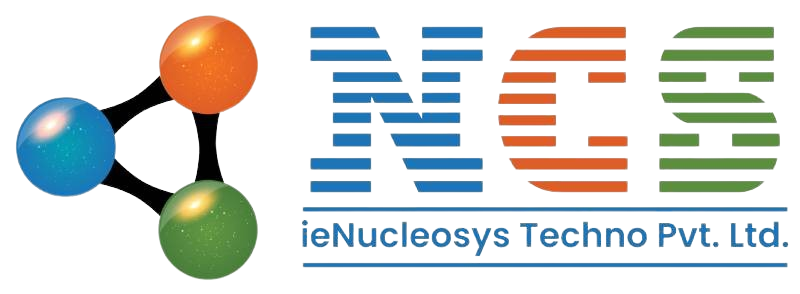Last Updated on October 30, 2025 by Nucleosystech
Introduction
Messaging apps have become an inseparable part of our daily lives. From quick texts to video calls, platforms like WhatsApp dominate global communication. However, concerns about data privacy, dependency on foreign-owned platforms, and rising interest in local alternatives have sparked debates around WhatsApp vs Arattai.
Arattai, developed by Zoho Corporation, is India’s homegrown alternative to WhatsApp. It promises not just secure conversations but also data sovereignty, ensuring that your information never leaves the country. As digital India grows, many users are now considering switching to Arattai for secure, lightweight, and Indian-hosted communication.
In this blog, we’ll compare WhatsApp vs Arattai, explore their features, discuss why Arattai matters for Indian users, and whether it has the potential to be a true rival to WhatsApp.
The Global Giant: WhatsApp
WhatsApp, owned by Meta Platforms (formerly Facebook), is the most widely used messaging app in the world. With more than 2 billion users globally, it offers instant messaging, voice calls, video calls, group chats, and business integration.
Key Advantages of WhatsApp:
-
Global reach and massive user base.
-
Wide feature set (status, media sharing, business tools).
-
End-to-end encryption for messages.
-
Strong integration with Facebook and Instagram.
However, WhatsApp has often faced criticism regarding:
-
Data sharing with Meta – leading to concerns over privacy.
-
Dependence on foreign servers.
-
Increasing data usage, making it heavy on low-cost devices.
This is where Arattai positions itself differently.
The Indian Challenger: Arattai
Arattai, meaning “chit-chat” in Tamil, is Zoho’s answer to WhatsApp. Launched during a time when privacy concerns around WhatsApp were at their peak, Arattai is designed as a lightweight, privacy-focused messaging app built entirely in India.
Why Arattai Stands Out
-
Servers hosted in India → ensuring no dependency on foreign data centers.
-
Lightweight application → consumes less data and runs smoothly even on budget smartphones.
-
End-to-end encryption → secure chats without compromising privacy.
-
Developed by Zoho → a globally trusted SaaS company with 90+ million users worldwide.
-
No foreign ownership → aligns with India’s vision of data sovereignty and “Digital Atmanirbhar Bharat.”
WhatsApp vs Arattai: Feature Comparison
Let’s break down the major aspects in the WhatsApp vs Arattai debate:
| Feature | WhatsApp (Meta, US) | Arattai (Zoho, India) |
|---|---|---|
| Ownership | Meta (USA) | Zoho (India) |
| User Base | 2+ Billion (Global) | Growing (Focused on India) |
| Encryption | End-to-end encryption | End-to-end encryption |
| Data Hosting | Global servers (outside India) | Indian servers (local hosting) |
| App Size | Heavy, higher data usage | Lightweight, data-efficient |
| Cross-platform | iOS, Android, Web, Desktop | iOS, Android (web coming soon) |
| Business Tools | WhatsApp Business API | Yet to develop fully |
| Privacy Concerns | Meta’s data-sharing policies | No foreign data access |
From the above, it’s clear that WhatsApp has the advantage of global dominance, but Arattai’s “Made in India” privacy-first approach gives it a unique edge for Indian users.
Why India Needs Arattai
-
Data Sovereignty
In the digital age, data is power. By hosting servers within India, Arattai ensures user information stays within national borders, protecting against foreign surveillance. -
Privacy Concerns with WhatsApp
WhatsApp’s updated policies around data sharing with Meta raised alarms among privacy-conscious users. Arattai, on the other hand, emphasizes zero data monetization. -
Digital Atmanirbhar Bharat
Just as UPI revolutionized payments, Indian-made alternatives like Arattai can strengthen the country’s independence in communication technology. -
Optimized for India’s Market
With millions of users relying on budget smartphones and limited data, Arattai’s lightweight design makes it accessible to all sections of society.
Challenges Ahead for Arattai
While Arattai brings promising features, it faces significant challenges in the WhatsApp vs Arattai battle:
-
User Base Gap: WhatsApp’s billions of users vs. Arattai’s relatively small numbers.
-
Feature Maturity: WhatsApp has advanced business tools, desktop apps, and integrations. Arattai needs to catch up.
-
Habit and Ecosystem: Users are deeply integrated with WhatsApp, making migration difficult.
However, with consistent innovation and government support, Arattai can scale rapidly, much like Indian payment platforms did against global players.
The Trust Factor: Zoho vs Meta
One of Arattai’s biggest strengths is its parent company, Zoho Corporation. Unlike Meta, which thrives on data-driven advertising, Zoho’s philosophy is privacy-first, no ads, and no user data selling.
This trust factor is crucial for Indians who seek transparency in how their data is managed. Arattai aligns with that philosophy by offering a clean, ad-free, secure messaging experience.
The Future of Messaging in India
The rise of Arattai reflects a larger movement: Indians want homegrown, secure, and transparent digital platforms. Just as Jio transformed telecom and UPI changed digital payments, Arattai could play a major role in redefining communication for India.
If Arattai continues to improve its features, scale up its infrastructure, and market itself as the “Indian alternative,” it can bridge the user base gap with WhatsApp.
Conclusion
The debate of WhatsApp vs Arattai is not just about two apps – it’s about data, trust, and independence.
-
WhatsApp remains the global leader with advanced features and massive adoption.
-
Arattai, however, represents India’s ambition to create a secure, privacy-focused, and locally hosted messaging platform.
In the long run, the choice between WhatsApp and Arattai will depend on whether users prioritize global connectivity or local privacy and sovereignty.
With its tagline, “Chat Indian. Stay Secure,” Arattai offers more than just messaging—it offers the promise of trust and independence in digital communication.
